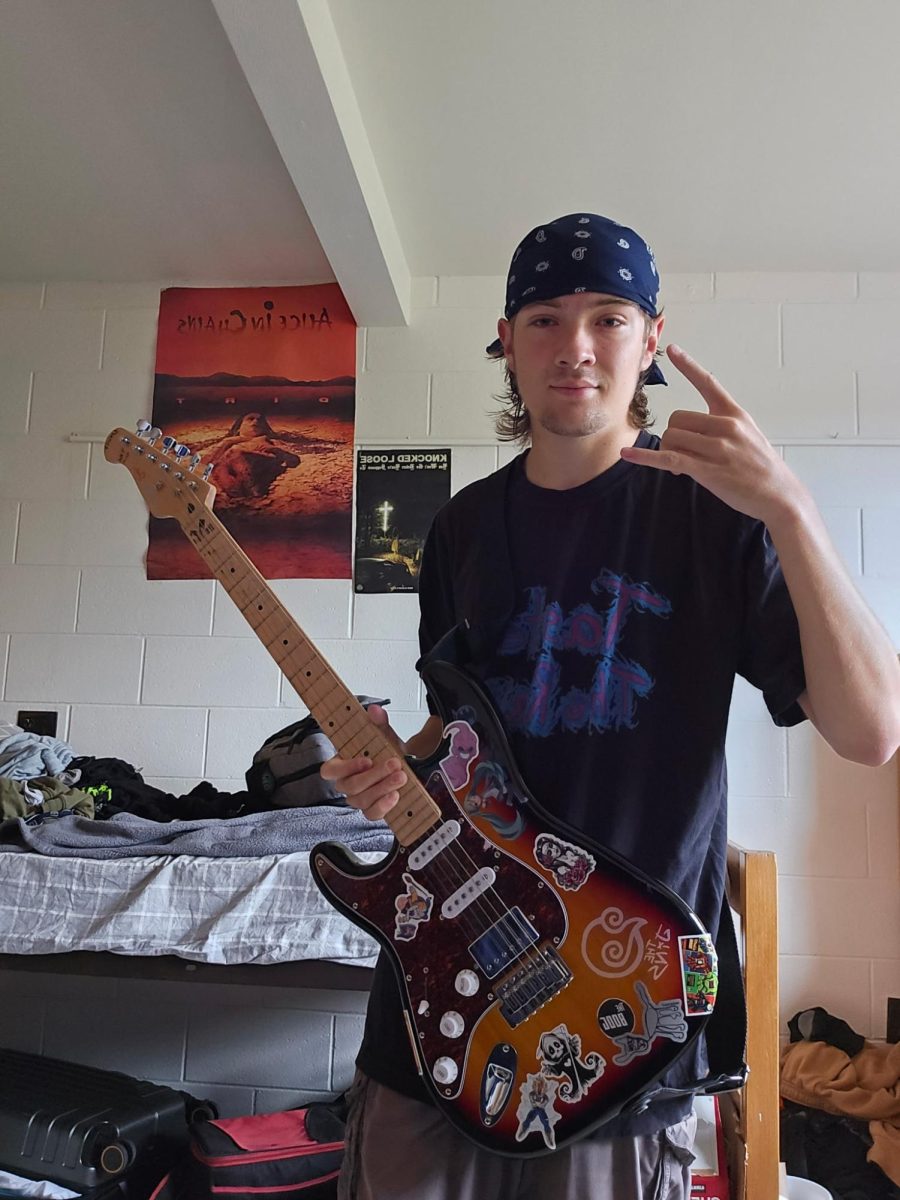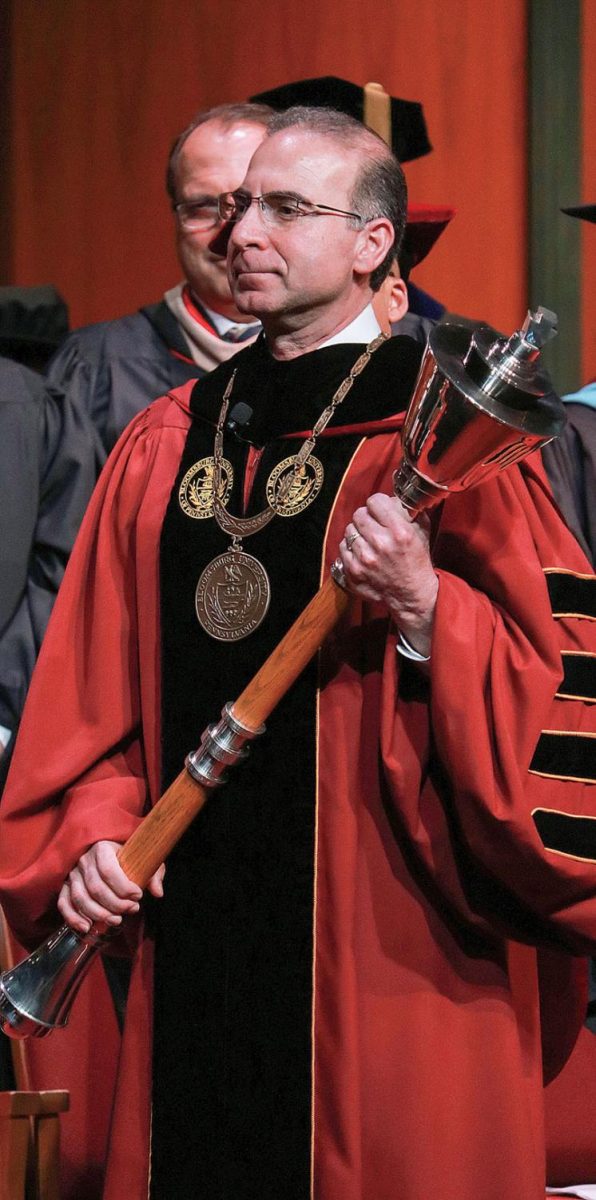What happened: Commonwealth University President Bashar Hanna, along with the Pennsylvania State System of Higher Education (PASSHE), Bloomsburg University and Dr. James Krause were found liable in a wrongful termination suit against former Bloomsburg University College of Business Dean Jeffrey Krug. The federal jury verdict awarded Krug with $3.9 million. Krug, the plaintiff, sued the four defendants on claims of being wrongfully terminated from his dean position for helping Hanna’s administrative assistant file a sexual harassment report against him.
Why it matters: This verdict is the end of a six-year-long lawsuit. The verdict identified four defendants and answered that the defendants did wrong in each question. According to Pat O’Connell, Krug’s attorney along with Barry Dyller, the total amount of damages awarded and the fact that each defendant was found guilty of retaliating against and causing harm to Krug was “astounding.”
On October 30, 2017, Hanna’s then-administrative assistant, Jane Doe, reported to Dr. Robert Dampman, a member of the University Council of Trustees, that Hanna had sexually harassed her. These allegations were disclosed to Krug’s administrative assistant who then reported it to Krug. In conversations with his father Alan Krug and sister Angela Johnston, both with knowledge of handling sexual harassment cases within the higher education setting, Krug chose to act on his duty as a mandated reporter and make a Title IX complaint.
The complaint was brought to the Title IX office and Robert Wislock, the then Title IX Coordinator. No official complaint was filed. Following the report, Krug reported feeling like he was being retaliated against for his role in reporting the alleged harassment.
On January 11, 2018, Krug received a letter from Bloomsburg University Human Resources telling him an investigation was being launched under the suspicions of Krug violating the Family Education Rights and Privacy Act which protects private information from being disclosed. He was instructed to partake in the investigation under threat of discipline and even termination if he did not do so. Krug attended an interview with a law firm representing PASSHE, Ballard Spahr. In this interview, Krug had no counsel and had no notetaker present to verify the accuracy of the attorney’s notes. The Ballard Spahr reports indicated that Krug had disclosed private information to individuals, one of whom was his father. Following the report, a pre-disciplinary conference (PDC) was held on March 9, 2018, with Dr. James Krause, the then interim provost at Bloomsburg University. Krug was terminated on March 21, 2018.
Krug was physically removed from campus in front of staff and students. Following his termination, a statement was released to the BU faculty and student body detailing the events leading up to Krug’s termination.
Krug filed a lawsuit against BU, PASSHE, Hanna, and Krause for numerous violations and unlawful retaliation.
Krug’s reputation was ruined with what O’Connell characterizes as “vengeance.” Through the discovery period of the trial, O’Connell found records of Krug having been named semi-finalist or finalist in “at least a dozen” higher education institutions during the hiring process. Several of the institution’s records indicated that the alleged FERPA violation and the lawsuit that followed was too “volatile” of a situation to get involved in.
“He went from making $190,000 in 2017 as Dean of the Business School to… an adjunct professor,” said O’Connell, detailing the impact the termination had on his career.
In O’Connell’s eyes, the facts of the case pointed to a clear outcome in favor of his client.
“The dean was assisting a vulnerable woman who was in a world of hurt, making a Title IX complaint. And your Title IX coordinator completely botches his job. And worse yet, they attempt an ill-conceived hit job on the dean, which terminated his career. Now, what rational person in their right mind would do what the dean did and assist someone who was being sexually harassed by a very powerful person in a similar situation if you can allow this to happen? You cannot equal justice under [the] law,” said O’Connell.
Hanna Responds
Following inquiries from The Voice, Dr. Basahr Hanna shared his feelings on the court’s ruling in a typed statement sent over email. “I was shocked and bewildered as the facts of the case do not align with the verdict.”
Hanna would elaborate further during an interview conducted over Zoom, where he clarified, saying, “As I said in my response, I mean I respect the jury; they’re volunteers. They are serving a purpose. What I will tell you is if you look at the case in totality. The case was about a wrongful termination, not about anything else, and a lot of background information was brought in. “
Going further, he said, “The accusations against me happened in 2017, and they were investigated by PASSHE, fully investigated by PASSHE, and as the statement I sent you says, there was no finding of sexual harassment; however, I think what happened in the trial was a lot of information was brought forth into the courtroom that I think ultimately influenced the jury, but I can’t put myself in the jury’s hands. That’s why I truly believe even the Attorney General’s attorneys who were representing us were bewildered and shocked by the verdict.”
The Future
With the court’s ruling and the amount of fiscal damages revealed, some wonder what will happen now. In Dr. Hanna’s case, he brought an appeal is not far in the future.
“Yes, I want to appeal because I believe the decision does not accurately reflect the facts of this case. I have formally requested an appeal; however, the final decision to proceed with an appeal is made by the State System and their Chief Counsel, in consultation with the Governor’s Office of General Counsel and the Office of Attorney General,” Hanna said in his typed statement.
During the live Zoom interview, he further went on to explain what the process entailed as to a possible timeline as for a possible appeal.
“So what happens after a civil trial in Pennsylvania is something called post-trial motions that the attorneys submit to the judge. Those have to be submitted to the judge within 28 days of the verdict. So after the post-trial motions are submitted and the judge rules on those post-trial motions then the Commonwealth Attorney General has 28 days after the judge rules on the post-trial motions to submit an appeal. So it’s a two-step process. First, it’s the post-trial motions, and second is the appeal.”
In a statement made by the Commonwealth University Council of Trustees, the group urged for an appeal, showing their support of Hanna’s continued presence at CU.
“We would encourage the State System and the Attorney General’s office to appeal swiftly after post trial motions are exhausted,” wrote the Chair of Commonwealth University’s COT John Wetzel on behalf of the group.
The Voice will continue to report on the verdict and its impact on the Husky community.
























